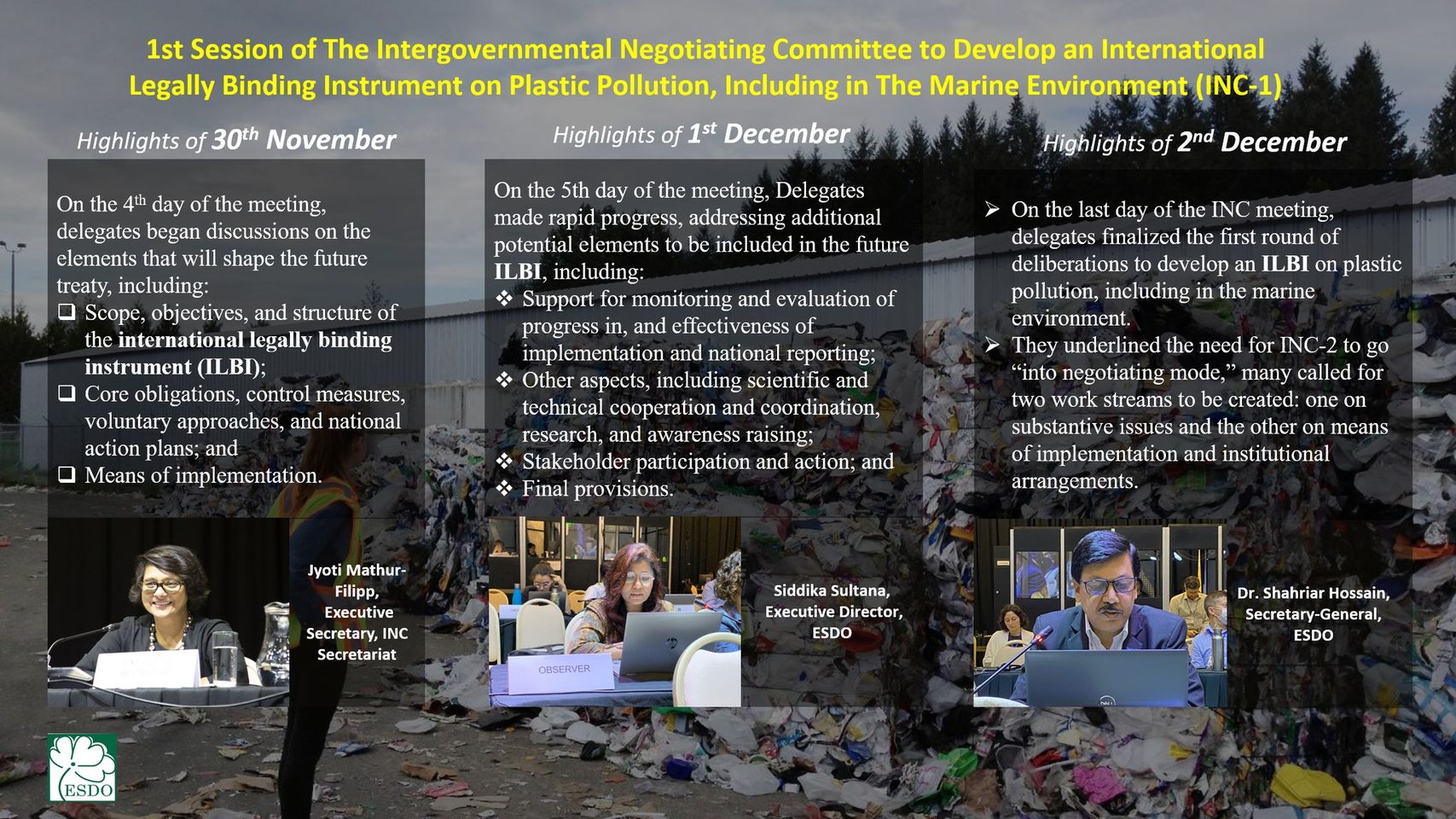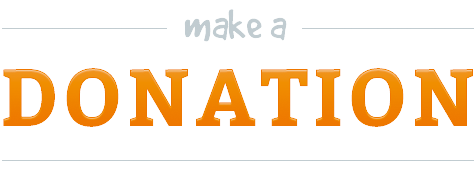Day 3, 4 and 5: 1st Session of the Intergovernmental Negotiating Committee to develop an international legally binding instrument on plastic pollution, including in the marine environment (INC-1)

Highlights of 30th November 2022
Delegates began to share their concrete visions of what they believe the future plastic treaty could look like at the first meeting of the Intergovernmental Negotiating Committee (INC-1) to develop an international legally binding instrument (ILBI) on plastic pollution, including in the marine environment, in Punta del Este, Uruguay.
Led by INC Chair Gustavo Meza-Cuadra, Peru, delegates began discussions on the elements that will shape the future treaty, including:
• scope, objectives, and structure of the ILBI;
• core obligations, control measures, voluntary approaches, and national action plans; and
• means of implementation.
After an initial round of highlighting perspectives on the scope and structure of the new instrument, INC Chair Gustavo Meza-Cuadra (Peru) proposed, and delegates agreed, to establish an informal group to work on possible options for the ILBI, as well to identify the modalities for stakeholder engagement at the INC.
In their discussions on core obligations and voluntary approaches, delegates diverged on whether the global instrument would contain mandatory requirements for all parties to the new instrument, binding on states, or whether national measures would be voluntary but coupled with mandatory global reporting expectations.
Further divergences emerged in discussions on means of implementation, with the source of funding coming into sharp focus. While many developing countries shared their expectations that developed countries would provide new, adequate, and predictable financial resources for implementation, some developed countries differed. They pointed to novel ways of fundraising for the implementation of this new instrument, including taxes imposed on plastic products or derived from extended producer responsibility as well as other schemes involving private investment.
Highlights of 1st December 2022
Delegates made rapid progress, addressing additional potential elements to be included in the future ILBI, including:
• support for monitoring and evaluation of progress in, and effectiveness of implementation and national reporting;
• other aspects, including scientific and technical cooperation and coordination, research, and awareness raising;
• stakeholder participation and action; and
• final provisions.
On monitoring, reporting, and evaluation, several delegations made concrete proposals highlighting their preference for, among others, non-burdensome reporting requirements on national actions addressing plastic pollution.
Stakeholder engagement proved to be an exciting discussion, with most welcoming stakeholder inputs but relegating these inputs to written submissions during the inter-sessional period. Significantly, the format of the multi-stakeholder forum came into question, with several delegations highlighting that the funds for the organization of this event may have taken away from financing the participation of developing country delegations.
They ended the day by considering the sequencing of work for future meetings of the INC. On this, there were suggestions for the establishment of contact groups. Some called for two contact groups addressing substance and institutional matters, while others called for multiple groups addressing issues related to particular stages of the lifecycle of plastics. Several delegations were adamant that running multiple contact groups in parallel would be a disservice to the process.
On behalf of ESDO and as a participant organization of IPEN, Executive Director of ESDO Siddika Sultana intervened in the session where she urged the INC to adopt the precautionary principle in making decisions to prevent the harms of plastics and their associated chemicals.
Highlights of 2nd December 2022
On the last day of the Intergovernmental Negotiating Committee meeting, delegates finalized the first round of deliberations at the first meeting of the Intergovernmental Negotiating Committee (INC-1) to develop an international legally binding instrument (ILBI) on plastic pollution, including in the marine environment.
In the morning, they shared their perspectives on how best to sequence the rest of the Committee’s work. Underlining the need for INC-2 to go “into negotiating mode,” many called for two work streams to be created: one on substantive issues and the other on means of implementation and institutional arrangements.
There were different views on how best to address these work streams, with a number of developing countries cautioning against setting up too many groups negotiating different aspects of the ILBI in parallel, noting that this would constrain the effective participation of small delegations.
The INC then considered pending agenda items. Delegates agreed to postpone the consideration of draft rule 37 of the rules of procedure, addressing voting rights, to INC-2.
On the last day of the meeting, the Secretary-General of ESDO, Dr. Shahriar Hossain intervened on Subitem-5 sequencing-Stakeholder engagement in the INC process. He emphasized the participation of all stakeholders in the INC process and urge the member states to allow and open all regional meetings to all stakeholders and to create a space for meaningful discussions between them.


